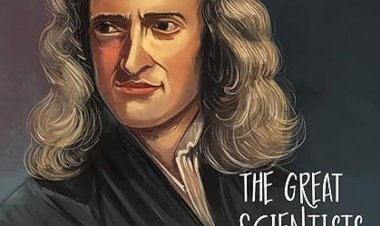Isaac Newton, a towering figure in the history of science, left an indelible mark on our understanding of the physical world. His groundbreaking inventions and theories laid the foundation for classical mechanics and reshaped the way we perceive the universe.
Newton’s most renowned contribution is undoubtedly the formulation of the three Laws of Motion. Published in his masterpiece “Philosophiæ Naturalis Principia Mathematica” in 1687, these laws describe the relationship between a body and the forces acting upon it, providing the framework for classical mechanics. The first law states that an object at rest will remain at rest, and an object in motion will stay in motion unless acted upon by an external force. The second law defines the relationship between the force applied to an object and its resulting acceleration. The third law asserts that for every action, there is an equal and opposite reaction.
These laws revolutionized the way scientists approached the study of motion and paved the way for advancements in engineering, astronomy, and countless other fields. From the design of modern vehicles to the exploration of outer space, Newton’s laws continue to shape our technological landscape.
In addition to his laws of motion, Newton’s work on universal gravitation is another groundbreaking achievement. He proposed that every particle of matter in the universe attracts every other particle with a force proportional to the product of their masses and inversely proportional to the square of the distance between their centers. This law of gravitation not only explained the motion of celestial bodies but also provided a unified explanation for both terrestrial and celestial phenomena.
Newton’s invention of the reflecting telescope was another triumph. His design, known as the Newtonian telescope, utilized a curved mirror to eliminate the chromatic aberration present in traditional refracting telescopes. This innovation significantly improved the clarity and precision of astronomical observations, allowing scientists to explore the cosmos with unprecedented detail.
Isaac Newton’s legacy extends beyond his inventions; it encompasses a profound shift in scientific thinking. His emphasis on empirical observation, rigorous mathematical analysis, and the formulation of universal laws laid the groundwork for the scientific method. Newton’s work continues to inspire generations of scientists and remains a cornerstone of our understanding of the physical world. As we marvel at the wonders of modern science and technology, we owe a debt of gratitude to the genius of Isaac Newton, whose inventions and theories propelled humanity into a new era of understanding.
